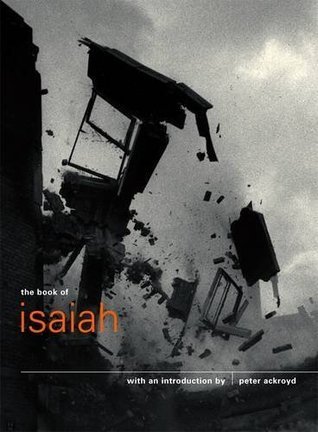The Book of Isaiah Book Summary
TL;DR
The Book of Isaiah combines messages of warning and hope, highlighting God's dual nature as judge and savior while presenting a vision of peace through the figure of 'Immanuel.'
What is The Book of Isaiah about
The Book of Isaiah is a pivotal text within the Old Testament, recognized as the foremost prophetic book. Written by the prophet Isaiah and possibly his disciples, it encompasses themes of divine judgment and redemption. The narrative juxtaposes visions of destruction and wrath with promises of restoration and peace, particularly through the anticipated arrival of a messianic figure referred to as 'Immanuel.' This duality reflects God's intentions to highlight the brokenness of the world while simultaneously offering hope for healing and restoration. Introduced by Peter Ackroyd, the text invites readers into a rich tapestry of poetic language and prophetic insight, presenting a profound exploration of faith and divine purpose.
Top The Book of Isaiah Quotes
- "For unto us a child is born, unto us a son is given; and the government shall be upon his shoulder."
- "The Lord has anointed me to proclaim good news to the poor; he has sent me to bind up the brokenhearted."
Who should read The Book of Isaiah?
Readers interested in theology, biblical studies, and literary analysis will find The Book of Isaiah enriching. Its messages of judgment and hope are particularly relevant for those exploring themes of justice, redemption, and the complexities of faith in contemporary society.
The Book of Isaiah Best Reviews
- "A profound exploration of faith that resonates through the ages, revealing both the judgment and mercy of God." - The New Testament Review
- "Isaiah's poetic brilliance offers a timeless commentary on the human condition, blending urgency with hope." - Biblical Studies Quarterly
People also liked these summaries
The Book of Isaiah FAQs
What is the main point of the book of Isaiah?
The main point of the Book of Isaiah is to deliver a message of warning about divine judgment while simultaneously offering hope for redemption through the figure of 'Immanuel,' who represents God's plan for a new Israel.
Who wrote the book of Isaiah?
Traditionally, the prophet Isaiah is considered the author of the book, although some scholars suggest that parts of it, particularly chapters 40-66, may have been written by his disciples.
What themes are explored in the book of Isaiah?
The Book of Isaiah explores themes of divine judgment, hope for redemption, the significance of the covenant, and the prophetic vision of a future of peace and harmony.
